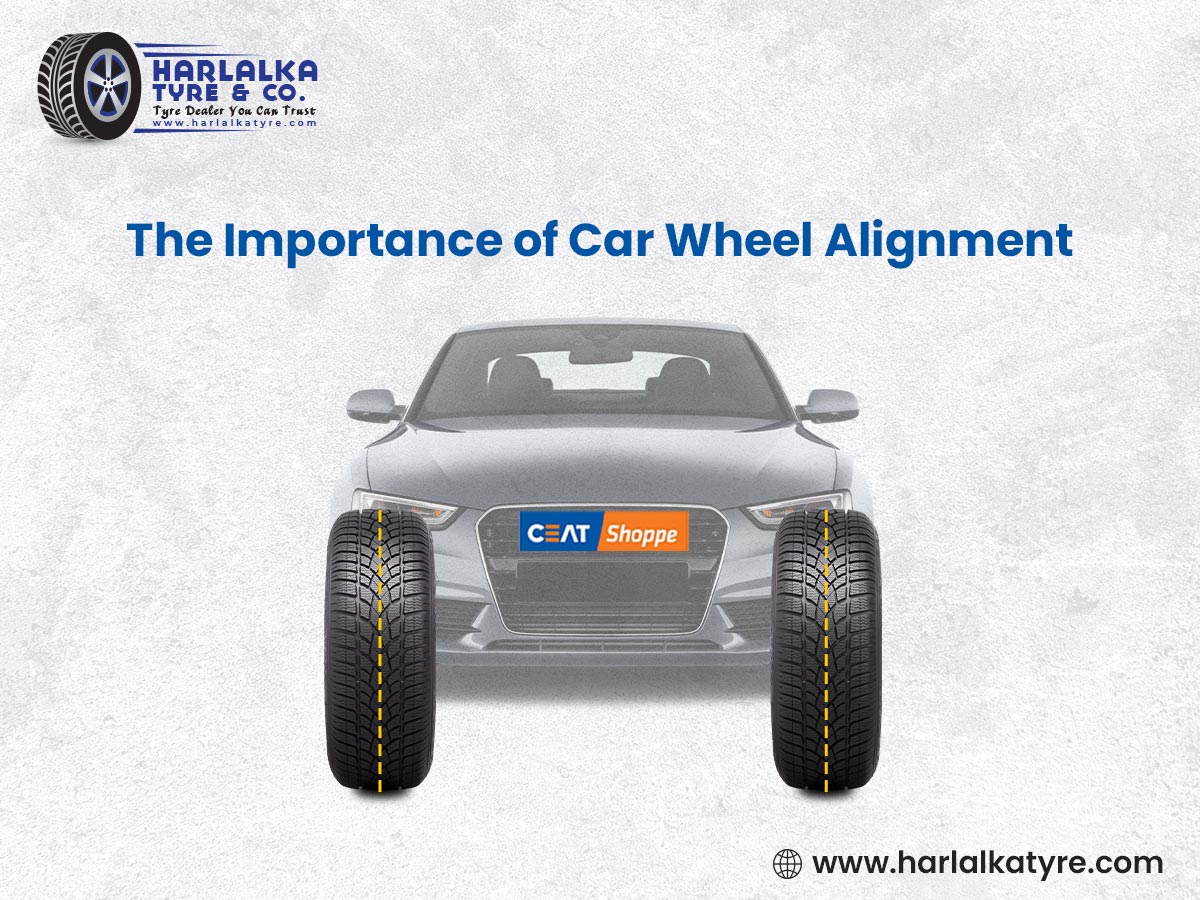






March 8th, 2024 by harlalka
Wheel alignment is a critical aspect of vehicle maintenance often overlooked by car owners. It involves adjusting the angles of the wheels to manufacturer specifications to ensure they are perpendicular to the ground and parallel to each other. While it may seem like a minor concern, proper wheel alignment is essential for safety, tire longevity, fuel efficiency, and overall vehicle performance.
Safety:
Wheel misalignment can compromise vehicle stability and handling, increasing the risk of accidents, especially during sudden maneuvers or emergency braking. When wheels are not properly aligned, it affects steering response and control, leading to unpredictable behavior on the road. Proper alignment ensures that the tires make optimal contact with the road surface, enhancing traction and stability, which are crucial for safe driving.
Tire Wear:
Incorrect wheel alignment causes uneven tire wear, significantly reducing tire lifespan and increasing maintenance costs. Misaligned wheels can lead to accelerated wear on specific areas of the tire tread, such as the inner or outer edges. This uneven wear not only decreases tire durability but also compromises grip and performance. By maintaining proper wheel alignment, tire wear is distributed evenly, maximizing tire longevity and ensuring consistent performance.
Fuel Efficiency:
Wheel misalignment can contribute to increased rolling resistance, requiring more energy to propel the vehicle forward. This inefficiency results in higher fuel consumption and increased emissions. Properly aligned wheels reduce rolling resistance, allowing the vehicle to move more efficiently, thereby improving fuel economy. By investing in regular wheel alignment, car owners can save money on fuel expenses and reduce their environmental footprint.
Handling and Performance:
Correct wheel alignment is essential for optimal handling and performance characteristics of a vehicle. Misaligned wheels can cause steering pull, where the vehicle tends to veer to one side, even on straight roads. This not only affects driving comfort but also requires constant steering correction, leading to driver fatigue. Proper alignment ensures balanced handling, smooth steering response, and improved overall driving experience.
Suspension System:
Wheel alignment directly impacts the suspension system’s health and performance. Misaligned wheels place additional stress on suspension components, including shocks, struts, and control arms, leading to premature wear and potential damage. By maintaining proper alignment, the suspension system operates within its intended parameters, prolonging its lifespan and reducing the likelihood of costly repairs.
Cost Savings:
Investing in regular wheel alignment may seem like an additional expense, but it can save car owners money in the long run. By preventing premature tire wear, improving fuel efficiency, and reducing the risk of mechanical issues, proper alignment helps avoid costly repairs and replacements. Additionally, it enhances the resale value of the vehicle by demonstrating meticulous maintenance and care.
Wheel alignment is a fundamental aspect of vehicle maintenance that directly impacts safety, performance, and cost-effectiveness. Neglecting proper alignment can lead to a host of problems, including safety hazards, premature tire wear, decreased fuel efficiency, and compromised handling. By prioritizing regular wheel alignment, car owners can ensure their vehicles operate at peak performance, prolong component lifespan, and enhance overall driving experience. Thus, investing in wheel alignment is not just about maintaining the vehicle; it’s about safeguarding lives, reducing costs, and promoting sustainable driving practices.